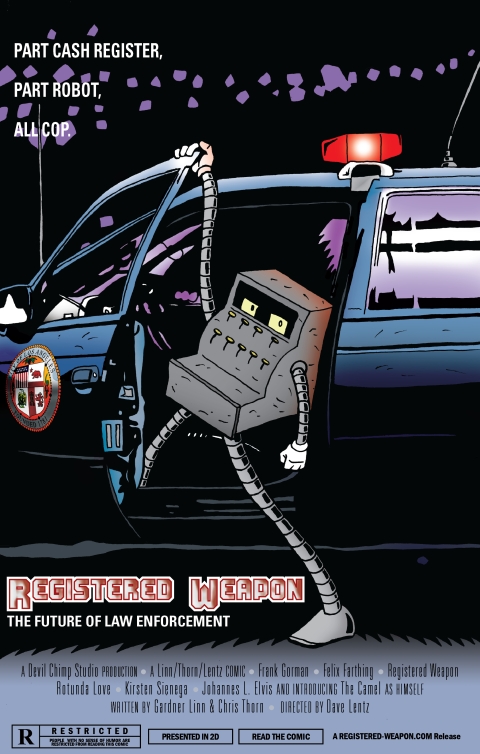
I'm looking at my notes for the “My Blog is a Business?” session, the one hosted by Rob McNealy, Chris Brogan, Jeremy Wright, and Nina Yablok. In the past, I've gone to many a seminar, and upon returning to the real world completely abandon whatever materials made the return trip, yet knowing that there was good information there.
So this time I figure if I read and actually create content based on these notes, then I'll be able to put some of this advice into action. Or someone else will, and as far as I'm concerned, that's just as good. Somehow that provides a good segway to one of the points I've highlighted.
You have to be willing to give the advice for free.

I'm looking at my notes for the “My Blog is a Business?” session, the one hosted by Rob McNealy, Chris Brogan, Jeremy Wright, and Nina Yablok. In the past, I've gone to many a seminar, and upon returning to the real world completely abandon whatever materials made the return trip, yet knowing that there was good information there.
So this time I figure if I read and actually create content based on these notes, then I'll be able to put some of this advice into action. Or someone else will, and as far as I'm concerned, that's just as good. Somehow that provides a good segway to one of the points I've highlighted.
You have to be willing to give the advice for free.
I guess I'm willing, and clearly able, as I'm sharing my notes right now. Blogs build community. Do I charge my neighbor to borrow my spreader to throw some seed down on his lawn? No. If my other neighbor tells me how great the azaleas I put in the front yard look, and later asks me what I'm feeding them, do I put an invoice in his mailbox that afternoon? No.
The same goes for blogging. The blogging community, (I'm trying really hard not to use the term blogosphere, because I hate it) is built upon helping one another. The comments we willfully post on other blogs add to the conversation. When someone asks how we got that survey widget to work, we e-mail a repsonse. No ones getting paid for these actions. Yet the interaction may lead to new readers of your blog, or the finding of likeminded individuals worthy of collaborating on paid projects at a future date. You never know. Someone who is stingy with money, you usually write off as that just being them. But someone who won't share knowledge that can help for the better, well you may write them off completely.
You have to be able to ask for money.
Is this point in direct opposition with the previous point? No, of course not, or else would they have really said it during a panel session. Well, maybe, but not this panel session.
You've already shown what value you can provide with your skills or recommendations. You've been sharing this knowledge for awhile, but there could come a time where you move answering a question here and there, to becoming more of a regular consultant.
During this panel session, one strategy for handling requests for payment, and setting of pricing was to ask the client what they think is an appropriate rate of pay. The panel was at a general concensus that there's a good chance you'll get a rate higher than you would have asked for. Sure, no one wants to look cheap or look like an ingrate, but even more so if it means you won't return for a future project with that payer.
There were a few other gems during this session, I'm not going to expand, because right now the only thing I'd like to expand is myself across my mattress and catch some sleep. But I will list them below, so some may have lightbulbs flash over their heads upon reading, while others will scratch their heads at the cryptic notes I jotted down.
Be a thought leader.
If you give good value, it doesn't have to be alot.
Ask the audience.
Ok…that's it for now, don't feel like falling asleep at the keyboard.
 David Carson clip. It was kind of personal and discussed how I ventured into design in order to write. I got distracted along the way because of designers like David Carson. And the writing went away for awhile. I can't recreate that post, so you get this one. I'm not going to apologize. I'm just going to be glad when I move to WordPress and I won't lose a post if I accidentally click “Back” when I'm in preview mode reviewing a post. I'm really pissed, and I'm trying to not let it get to me right now, especially since there was a lot of other work I need to finish up, and instead I wrote this posts , not this one, but the one that's now gone. And now we're all stuck with a lesser, and less personal post.
David Carson clip. It was kind of personal and discussed how I ventured into design in order to write. I got distracted along the way because of designers like David Carson. And the writing went away for awhile. I can't recreate that post, so you get this one. I'm not going to apologize. I'm just going to be glad when I move to WordPress and I won't lose a post if I accidentally click “Back” when I'm in preview mode reviewing a post. I'm really pissed, and I'm trying to not let it get to me right now, especially since there was a lot of other work I need to finish up, and instead I wrote this posts , not this one, but the one that's now gone. And now we're all stuck with a lesser, and less personal post. I've been two timing this here blog with my new gal I like to call
I've been two timing this here blog with my new gal I like to call 



